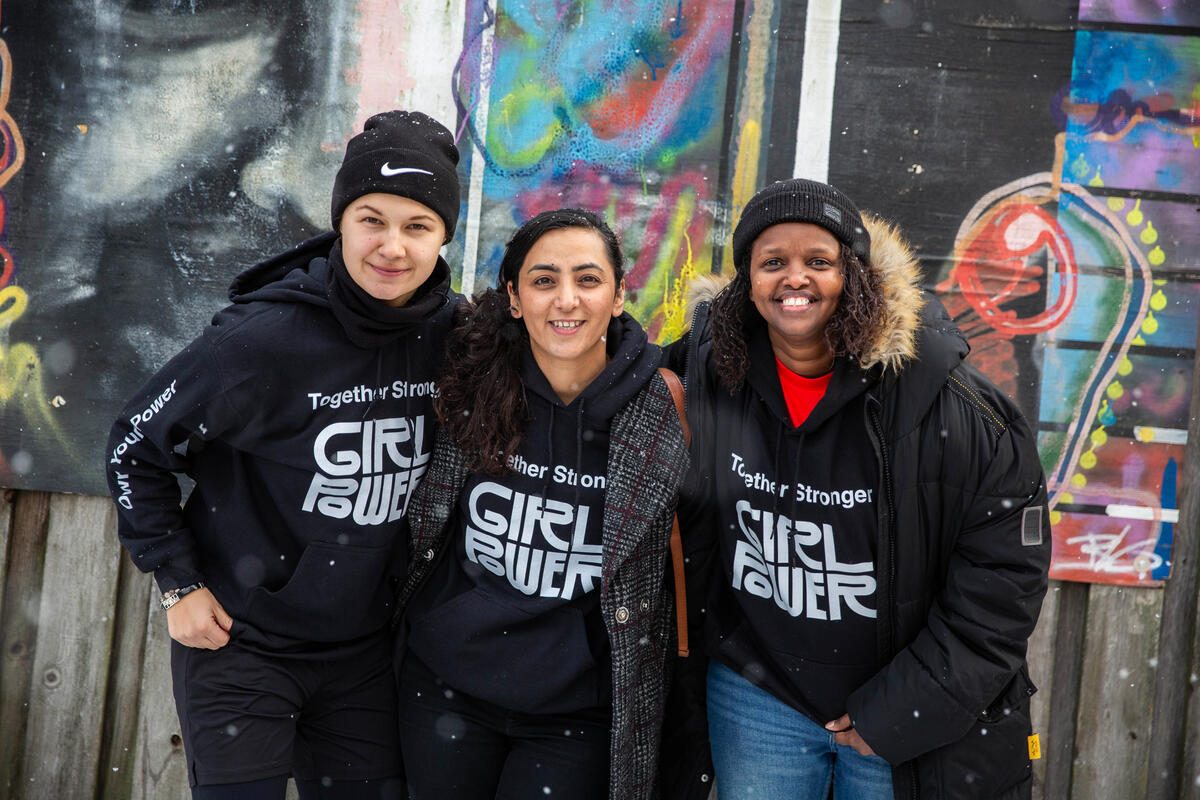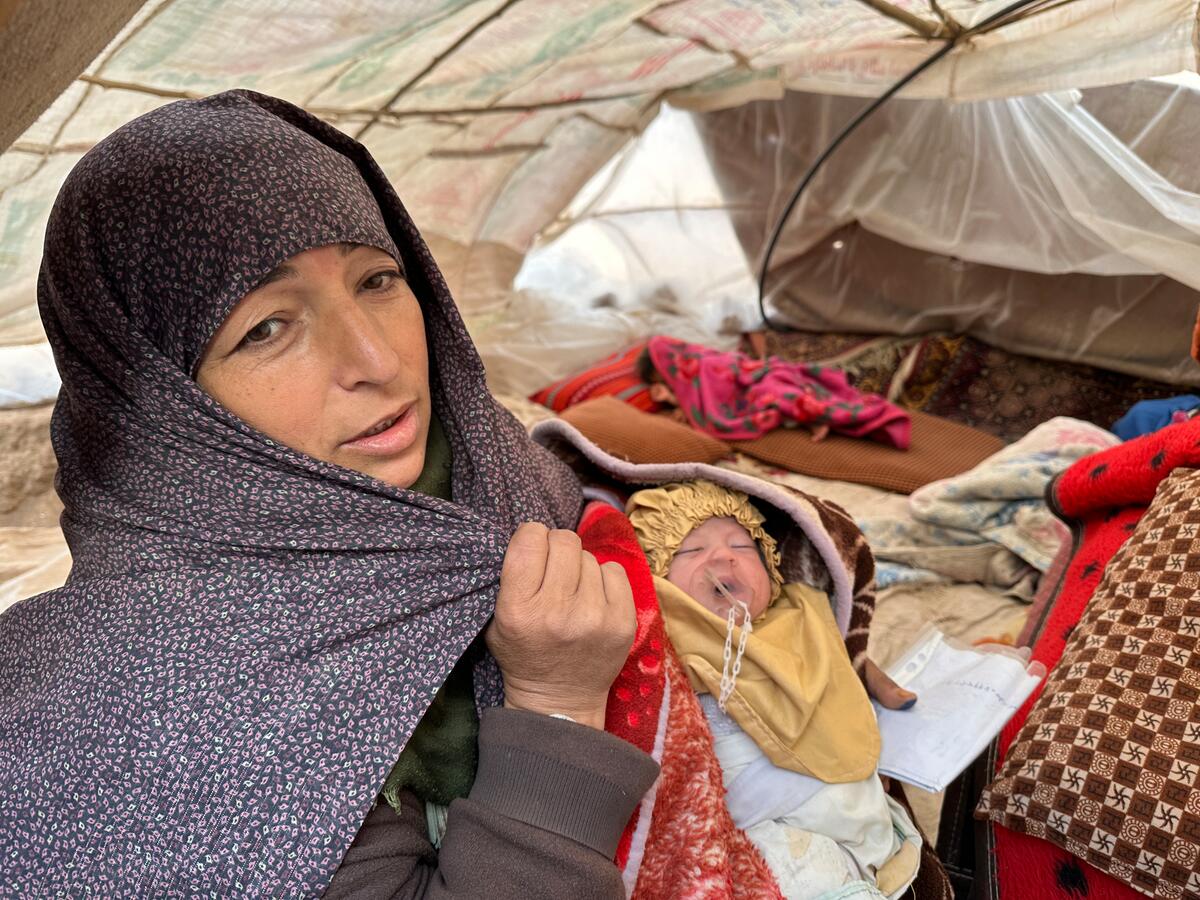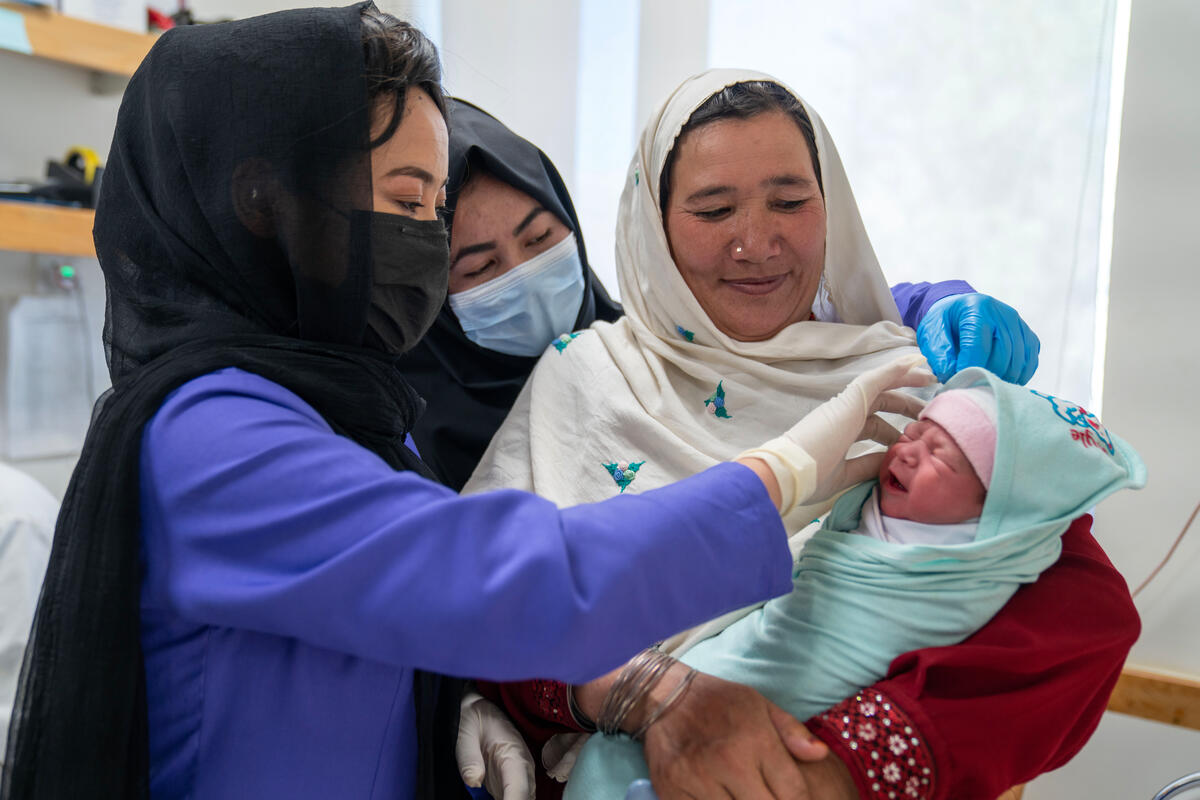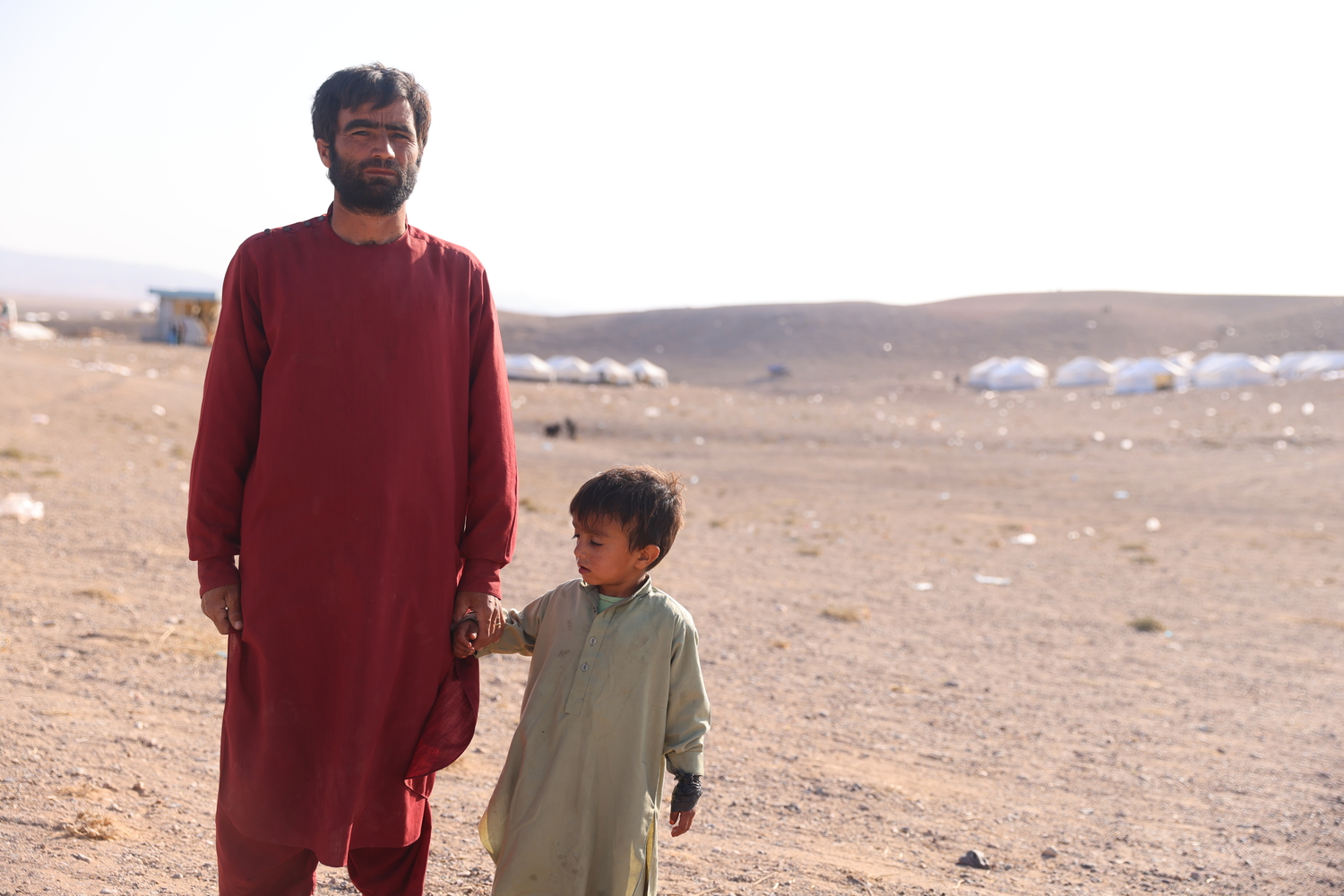Feature: Karachi exodus leaves rest of Afghan refugees pondering future
Feature: Karachi exodus leaves rest of Afghan refugees pondering future
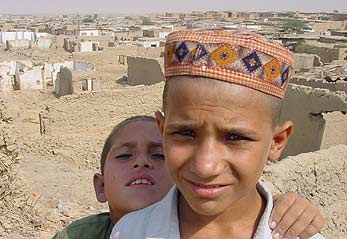
KARACHI, Pakistan, October 28 (UNHCR) - Rubble spreads across the featureless brown landscape, a jumble of mud bricks and shattered walls that looks like the aftermath of an earthquake. This is all that remains of the houses where tens of thousands of Afghan refugees lived until they returned to their homeland this year.
About half of the residents of the teeming Camp-e-Jadeed settlement moved back to Afghanistan after the UN refugee agency began a voluntary repatriation programme in March. As the families climbed aboard their trucks and buses for the journey, Pakistani officials moved in with bulldozers and sledgehammers to destroy houses that might draw them back.
They didn't have to worry. UNHCR field workers say few of the more than 50,000 refugees who left Camp-e-Jadeed have drifted back. In total, the refugee agency has helped 156,000 Afghans leave Karachi and more than 1.5 million from all of Pakistan.
That does not mean that the 22-year-long story of Afghan refugees in Pakistan will end soon. The remaining tens of thousands of refugees in this camp, located just outside the northern boundary of Karachi, may not share that initial enthusiasm to return. Many have been here for years; many may never even have seen Afghanistan.
Situations like that in Karachi, Pakistan's largest city and host still to hundreds of thousands of Afghans, are at the heart of a new agreement between Pakistan, Afghanistan and UNHCR that gives a framework for repatriation. Under the terms settled a week ago, which still must be formally signed by the governments, the three parties will continue to assist voluntary repatriations for the next three years, with annual reviews. After that period, remaining Afghans will be screened to see who still needs the protection of refugee status.
The UN refugee agency is trying over the winter months to determine how many refugees are likely to seek assistance to return home in 2003. It regularly disseminates information on conditions inside Afghanistan so that refugees can make a decision on returning.
On Oct 19, the BBC started broadcasting a UNHCR-funded radio programme aimed at providing objective information to returnees and those who may wish to return to Afghanistan. "Return" is broadcast in Afghanistan's two main languages, Dari and Pashto, and is on the air five times a week (Saturday to Wednesday) on shortwave frequency 15420 kHz (19-metre band) and 17870 kHz (16-metre band) at 0730 to 0800 GMT (1200 to 1230 Afghan time) and 1200 to 1230 GMT (1630 to 1700 Afghan time).
The refugees in Karachi reflect the complexity of their homeland. The sprawling city contains pockets of Afghans from all ethnic communities. Some feel reassured by the new government in Kabul, others are nervous. Some are relatively recent arrivals, fleeing Afghanistan because of the former Taliban government. Others were driven from their homes in the first months after the Soviet invasion of Afghanistan in December 1979.
"I do want to go back, but God knows when," said Mohammed Islam, a Tajik from the northern Afghan province of Baghlan who left his country 20 years ago. "If the government helps us with housing or setting up a business, I will go."
"But I don't have even a place to sit," he added in the market at Camp-e-Jadeed. "What would I do there?"
Conditions in the settlement - not an official UN camp - are tough. The dirt streets blend into the mud walls of the houses packed side by side. All drinking water is trucked in by businessmen and then resold to residents. The few schools that exist rarely teach more than the Koran. It is an indication of the depth of unease about conditions in Afghanistan that some residents would rather remain than take a chance on returning.
"If you think about life in Afghanistan, it is much better here," said Mohammed Zair, an ethnic Uzbek from northern Afghanistan who has lived in Karachi for 17 years. "I can have enough to eat at night and I have security."
Some Afghans might never want to return - a situation foreseen in the new tripartite agreement provision to screen those Afghans who remain in Pakistan after three further years of voluntary repatriation.
But many just want reassurance that Afghanistan is recovering. They want to know that the peace that now prevails in most of the country has spread everywhere and become permanent. They need to be able to rebuild their houses. They want to be able to work - jobs in reconstruction and fields cleared of landmines.
Ethnic Hazaras who lived in the Metroville area, an unlikely-named district of dirt streets inside Karachi, were among the Afghan refugees most anxious to return. Many had fled the Taliban offensives in the late 1990s and did not have the deep roots of those who had been in Karachi for a decade and more.
Representatives of the Aga Khan Foundation, which provides support to the Ismaili-faith Hazaras, estimate that up to 70 percent of the community have returned to Afghanistan and say that few who left have reappeared. Those who did not go home this year are looking closely at prospects for joining the exodus.
Hazaras who were gathered at an Aga Khan medical centre, built inside a walled compound that shelters 1,000 families from the dangers of Karachi slum life, said they would be drawn back to Afghanistan by the prospect of jobs and an assurance of education for their children. The new agreement between Pakistan, Afghanistan and UNHCR foresees such a gradual return of remaining refugees.
"We have been in a war for more than 20 years now and nothing can be solved quickly," said Abdul Hafis, a worker in Karachi's garment industry who arrived two years ago. The 25-year-old Afghan said he hoped to go home but wanted assurances that his young son would face a good future.
"It will improve step by step," he said. "Maybe next year it will be better and I will think about it then."
By Jack Redden
UNHCR Pakistan


